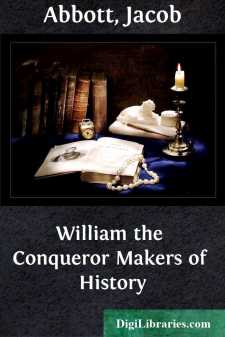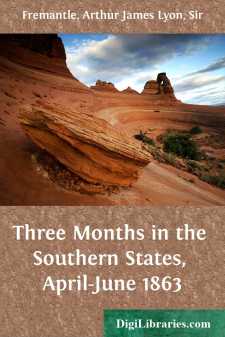History
- Africa 30
- Americas (North Central South West Indies) 50
- Ancient 68
- Asia 58
- Australia & New Zealand 8
- Canada 41
- Caribbean & West Indies 1
- Civilization 20
- Eastern Europe 12
- Europe 310
- Expeditions & Discoveries 60
- General 77
- Historical Geography 1
- Jewish 9
- Latin America 3
- Medieval 8
- Middle East 13
- Military 248
- Revolutionary 8
- Study & Teaching 5
- United States 353
- Western Europe 56
- World 13
History Books
Sort by:
THE GREAT EVENTS (THE PERIOD OF THE ROMAN EMPIRE) CHARLES F. HORNE So vast and wonderful a construction was the Roman world, so different from our own, that we are apt to imagine it as an arrangement far more deliberately planned, far more mechanically complete, than it appeared to its own inhabitants. From a cursory glance, we may carry away wholly mistaken conceptions of its thought and purpose....
more...
by:
David Hume
An act was passed for the security of the king's person and government. To intend or devise the king's imprisonment, or bodily harm, or deposition, or levying war against him, was declared, during the lifetime of his present majesty, to be high treason. To affirm him to be a Papist or heretic, or to endeavor by speech or writing to alienate his subjects' affections from him; these...
more...
I.--The Nile and Egypt A long, low, level shore, scarcely rising above the sea, a chain of vaguely defined and ever-shifting lakes and marshes, then the triangular plain beyond, whose apex is thrust thirty leagues into the land--this, the Delta of Egypt, has gradually been acquired from the sea, and is, as it were, the gift of the Nile. Where the Delta ends, Egypt proper begins. It is only a strip of...
more...
by:
Samuel Butler
Contrary to the advice of my friends, who caution me to avoid all appearance of singularity, I venture upon introducing a practice, the expediency of which I will submit to the judgment of the reader. It is one which has been adopted by musicians for more than a century—to the great convenience of all who are fond of music—and I observe that within the last few years two such distinguished painters...
more...
by:
Jacob Abbott
Chapter I. A.D. 870-912The Norman Conquest.Claim of William to the throne.The right of the strongest.One of those great events in English history, which occur at distant intervals, and form, respectively, a sort of bound or landmark, to which all other events, preceding or following them for centuries, are referred, is what is called the Norman Conquest. The Norman Conquest was, in fact, the accession...
more...
by:
Emma Helen Blair
Chapter I [Medina’s narrative opens with the expedition of Legazpi, and the part played therein by the Augustinian Andrés de Urdaneta and his companions. Felipe II, having determined upon an expedition to the western islands, “entrusted the matter to the viceroy of Nueva España, at that time Don Luis de Velasco, a man of so great worth in all matters, that he has never received adequate praise....
more...
by:
Richard Hakluyt
The same in English. Thomas Chaloner was by birth a Londiner, by studie a Cantabrigian, by education a Courtier, by religion a deuout and true Christian. Therefore after he had confirmed his youth and minde in the studies of good learning, when Sir Henry Kneuet was sent ambassadour from the mighty Prince Henry the 8. to the Emperour Charles the fift, he went with him as his familiar friend, or as one...
more...
PERSONALITY OF THE KAISER AND SOMETHING OF THE KING BUSINESS To the American mind the Kaiser is the personification of Germany. He is the arch enemy upon whom the world places the responsibility for this most terrible of all wars. I have sat face to face with him in the palace at Berlin where, as the personal representative and envoy of the President of the United States, I had the honor of expressing...
more...
2d March 1863.—I left England in the royal mail steamer Atrato, and arrived at St Thomas on the 17th. 22d March.—Anchored at Havana at 6.15 a.m., where I fell in with my old friend, H.M.'s frigate Immortalité. Captain Hancock not only volunteered to take me as his guest to Matamoros, but also to take a Texan merchant, whose acquaintance I had made in the Atrato. This gentleman's name is...
more...
CHAPTER XL. FIRST MEETING WITH SECRETARY STANTON—GENERAL ROSECRANS—COMMANDING MILITARY DIVISION OF MISSISSIPPI—ANDREW JOHNSON'S ADDRESS—ARRIVAL AT CHATTANOOGA. The reply (to my telegram of October 16, 1863, from Cairo, announcing my arrival at that point) came on the morning of the 17th, directing me to proceed immediately to the Galt House, Louisville, where I would meet an officer of the...
more...











